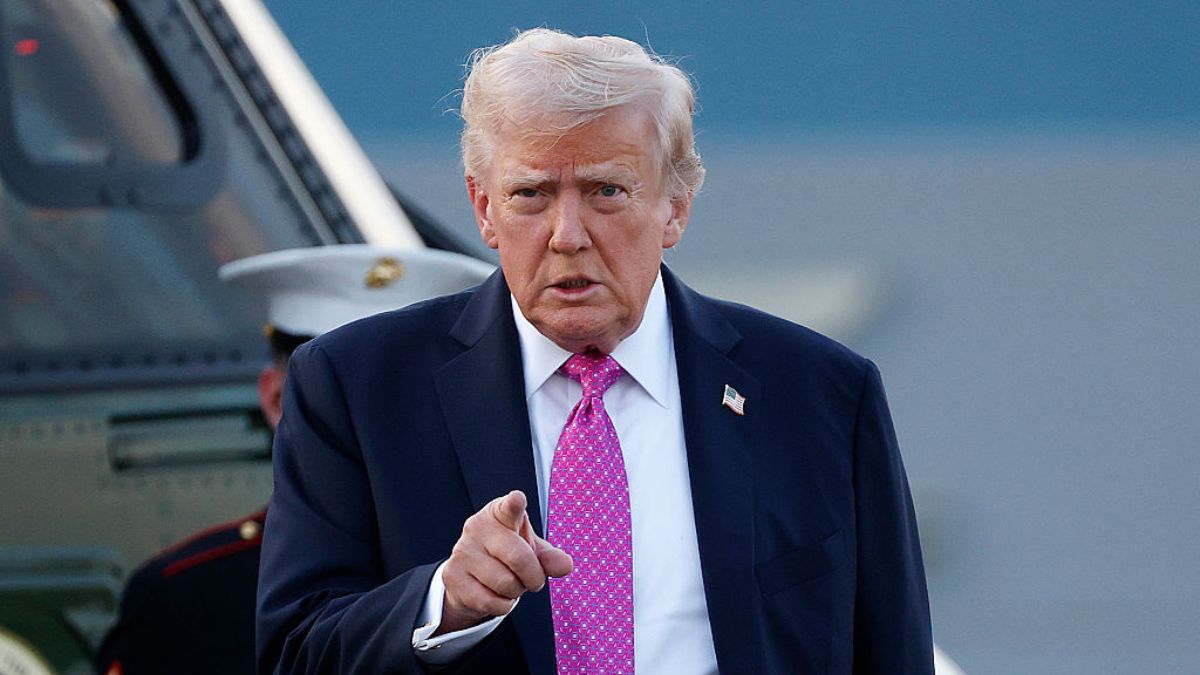
President Donald Trump announced on Thursday that he will designate Antifa as a “major terrorist organization,” but legal experts say he lacks the authority to make such a designation under current federal law. The move comes after the assassination of conservative activist Charlie Kirk at Utah Valley University on September 10, which has intensified political tensions nationwide.
Trump made the announcement on his Truth Social platform while on a state visit to the United Kingdom. The declaration follows similar threats he made during his first presidency in 2020, though he never followed through on those promises at the time.
In his post, Trump wrote: “I am pleased to inform our many U.S.A. Patriots that I am designating ANTIFA, A SICK, DANGEROUS, RADICAL LEFT DISASTER, AS A MAJOR TERRORIST ORGANIZATION.” He added that he would “strongly recommend that those funding Antifa be thoroughly investigated in accordance with the highest legal standards and practices.” The announcement has drawn both praise from Republican lawmakers and criticism from civil liberties advocates who warn it could be used to target political opponents.
Legal experts point to major constitutional hurdle
The main problem with Trump’s plan is that federal law only allows the government to designate foreign groups as terrorist organizations. Georgetown professor Bruce Hoffman told reporters that “Antifa is a dubious candidate for designation as a terrorist organization since the law only allows foreign terrorist groups to be designated as such.”
ANTIFA is now designated as a major TERRORIST ORGANIZATION, and those funding them will be thoroughly investigated with the highest legal standards and practices.
— The Lie Lamaa
The games are over, and the gloves are off. pic.twitter.com/WO15QsLvIn(@BhaktBusters) September 18, 2025
The current system lets the Secretary of State add groups to the Foreign Terrorist Organization list, which includes ISIS and Al-Qaeda. However, there is no similar mechanism for domestic groups. During Trump’s second presidency, his FBI director Christopher Wray explained that Antifa is “a movement or an ideology” rather than a structured organization, making it even harder to classify under existing laws.
Former Justice Department official Mary McCord has said that attempts to designate Antifa would “raise significant First Amendment concerns.” The Constitution protects freedom of speech and assembly, creating additional barriers to labeling domestic political movements as terrorist groups. This mirrors Trump’s pattern of declaring various forms of protest as terrorism without proper legal backing.
Federal law defines domestic terrorism in Title 18 of the U.S. Code, but experts note that “no federal criminal provision expressly prohibits domestic terrorism.” Instead, prosecutors typically pursue charges for specific crimes like weapons violations, explosives, or rioting when dealing with domestic terrorism cases.
The designation follows the recent arrest of Tyler Robinson, a 22-year-old Utah man charged with murdering Charlie Kirk. The FBI has revealed that Robinson may not have acted alone in the assassination. Prosecutors say Robinson had become “more pro-gay and trans rights oriented” and left anti-fascist messages on bullet casings found at the crime scene. Robinson faces the death penalty if convicted.
Republican lawmakers have praised Trump’s announcement, with Senator Bill Cassidy saying “The President is right to recognize the destructive role of Antifa by designating them domestic terrorists.” However, critics argue the move is largely symbolic and may be used to justify broader crackdowns on left-wing activism. Without changes to federal law, Trump’s declaration appears to have little practical legal effect.







